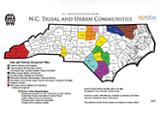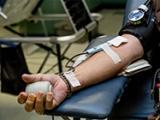Meeting the Cancer Prevention and Care Needs of North Carolina’s Indigenous Communities-SPOC

Ronny Bell, PhD, MS, and Marc Emerson, PhD, MPH, in this collaborative session will provide context regarding the cancer disparities and efforts to address these disparities for American Indians and Alaska Natives across the US. Dr.
Category
- Patient Centered Care
- Southeastern American Indian Cancer Health Equity Partnership
Format
- Non-Credit Course
Credits
- 1.00 Participation
Introduction to Abdominal CT SPOC

This will be an interactive, introductory session on computed tomography with an emphasis on anatomy and common oncology findings.
Category
- Advanced Practice Provider
Format
- Non-Credit Course
Credits
- 1.00 Participation
Building Cancer Care Collaboratives for the Seventh Generation - SPOC

Rodney Haring, PhD, MSW, will discuss how treaty and wampum conversations have impacted the cancer care of Indigenous populations. Building on this foundation, Dr.
Category
- Southeastern American Indian Cancer Health Equity Partnership
Format
- Non-Credit Course
Credits
- 1.00 Participation
Head and Neck Cancer Management in North Carolina: Updates for 2020 SPOC

Dr.
Category
- Research to Practice
Format
- Non-Credit Course
Credits
- 1.00 Participation
Cancer Genetics and Genetic Testing - It's Not All in the Family - SPOC

Genetic sequencing technologies are increasingly applied in the oncology setting for a variety of purposes. Genetic testing of tumor specimens can help clarify a diagnosis and inform targeted therapies. Kate Foreman, MS, CGC helps us navigate this field.
Category
- Patient Centered Care
Format
- Non-Credit Course
Credits
- 1.00 Participation
Laboratory Workup for Transfusion Reactions - SPOC

Join Transfusion Medicine and Blood Bank Fellow, Mariama Evans, MD, for a review of transfusion reactions and their laboratory workup. Specific topics to include the most common transfusion reactions seen in cancer patients and the laboratory techniques utilized, such as Direct Antiglobulin Test (DAT) and elutions.
Category
- Advanced Practice Provider
Format
- Non-Credit Course
Credits
- 1.00 Participation
Topics in Cancer Pharmacy in North Carolina: Updates for Oral Chemotherapy for 2022 - SPOC

Oral chemotherapy is becoming increasingly common in treatment of various malignancies. Although oral oncolytics are extremely beneficial for patients, they also present unique challenges for patients and providers alike. Implementing oral chemotherapy often requires a multidisciplinary approach. This lecture discusses several considerations for oral chemotherapy such as prescribing, patient education, adherence, medication access, cost and insurance authorization, monitoring, supportive care, and more. We will walk through a patient case to highlight practical suggestions for successful implementation of oral chemotherapy for patients.
Category
- Research to Practice
Format
- Non-Credit Course
Credits
- 1.00 Participation
Mobile Health and ePROs/symptom Assessment to Assist with Surgical Recovery - SPOC

In this webinar, Angela Smith, MD, MS, FACS discusses the definition and use of electronic patient-reported outcomes (ePROs) and mobile health technology in optimizing postoperative cancer care.
Category
- Patient Centered Care
Format
- Non-Credit Course
Credits
- 1.00 Participation
Psycho-Social Complications of Receiving a Cancer Diagnosis and Treatment During the Pandemic - SPOC

This presentation focuses on the unique psychosocial complications related to being diagnosed with - and treated for - cancer during the COVID pandemic.
Category
- Patient Centered Care
Format
- Non-Credit Course
Credits
- 1.00 Participation
Ostomies and Enteral Tubes - SPOC

Ostomies, tubes, and drains are often necessary in the adult oncology population for various reasons and clinical scenarios. This presentation serves as an overview of the different types of ostomies, as well as frequently used tubes and drains, such that APPs across all oncology disciplines will be familiar with their necessity, use, and common complications.
Category
- Advanced Practice Provider
Format
- Non-Credit Course
Credits
- 1.00 Participation

 Facebook
Facebook Twitter
Twitter LinkedIn
LinkedIn Forward
Forward